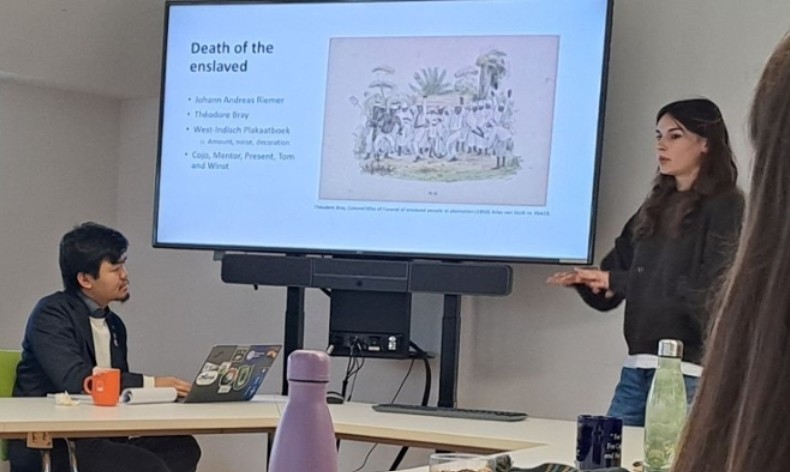History of Inequality and Power (MA)
About the programme
History of Inequality and Power provides you with an in-depth understanding of the past and present that will contribute to solving current societal problems.
During your study, you will uncover how power determined the social dynamics in parties, courts, media, universities, hospitals and clubs. You can choose to look at subjects like crime, disease, slavery, and racism, how these subjects were discussed in the past and how they are remembered now.
Programme structure
| Literature seminar | 10EC |
| Research seminar | 10EC |
| Research workshop | 10EC |
| Optional course(s) | 10EC |
| MA Thesis | 20EC |
Seminars and workshops
In the seminars and workshops students meet in small groups to discuss historical themes, sources, methods and historiographical debates. These courses focus on acquiring knowledge, learning analytical and practical skills, and exchanging ideas and reflection. The courses in the first semester are all related to the specialisation.
Elective(s) and thesis
In the second semester, you can fill the elective , either by choosing a course from a wide range of possibilities, within or outside the MA History, or opt for an internship. Our Study Advisor can tell you about all the possibilities. As part of your MA thesis, you will carry out research on a self-selected topic within the scope of your specialisation. You will do this under the supervision of a supervisor of your choice, thereby making use of the knowledge and expertise that Leiden has to offer.
Literature Seminar
The Literature Seminar (10 EC) is the introductory course of the MA specialisation that every student begins with. In this intensive 2-hour weekly seminar, you will delve deeper into key themes and academic debates related to the specialisation's focus, using secondary sources such as monographs and academic articles.
Research workshop
In the Research workshop (10 EC) you will learn to work with a wide range of research methods and sources, including digital tools, and engage in discussions on topics such as professional conduct, ethical dilemmas, and the relevance of history for society and the job market.
Research seminar
The Research Seminar (10 EC) is a seminar in which students conduct research using primary sources and literature, presentations are given and a paper is written. The Research seminar is a 2-hour per week course for twelve weeks that is concluded with a substantial paper.
Optional course(s) or internship
You can choose from MA-courses offered at level 400 or higher within or outside the MA History, or opt for an internship.
MA thesis
The programme concludes with a thesis, based on original source research and a final oral exam. Together they are valued at 20 EC. During the final ceremony you are expected to present and defend your thesis vis-à-vis with your thesis supervisor and a second examiner.
Internships
Due to its location between the largest cities in the country, students of the History of Inequality and Power programme can do internships at a large number of organisations and institutes. The History department maintains close ties with - to name just a few:
- Dutch Ministry of the Interior,
- Board of Democracy and Civil Affairs (Binnenlandse Zaken),
- Dutch Ministry of Asylum and Migration,
- Dutch House of Representatives (Tweede Kamer),
- Municipality of Amsterdam, Board and Organisation,
- De Goede Zaak (campaign platform),
- Dutch Council for Refugees (NGO Vluchtelingenwerk),
- Pax (Humanitarian NGO),
- Various musea.

Student conference full of new perspectives on inequality
What role did inequality play in the past? On Friday 5 December, Master's students in history presented their answers at a conference they organised themselves. The course (In)Equalizers! Social and Economic Histories of Inequality(ies) and Difference(s), 1500-2000 is an initiative of lecturers Catía Antunes and Paul van Trigt. ‘When we discussed what binds us together within the socio-economic history section, (in)equality quickly emerged as a topic,’ says Van Trigt. Read more.
Extracurricular activities
To foster the exchange of ideas and academic dialogue, the Institute for History regularly hosts lectures. Distinguished scholars and professionals from both the Netherlands and abroad are invited to share their insights. Leiden researchers also regularly give lectures and present their ongoing research projects. These informal gatherings are free to attend and warmly welcome students, offering valuable opportunities where students and staff can meet outside of the classroom.
Admission and Application
Do you want to find out if you are eligible for this master's Programme?

